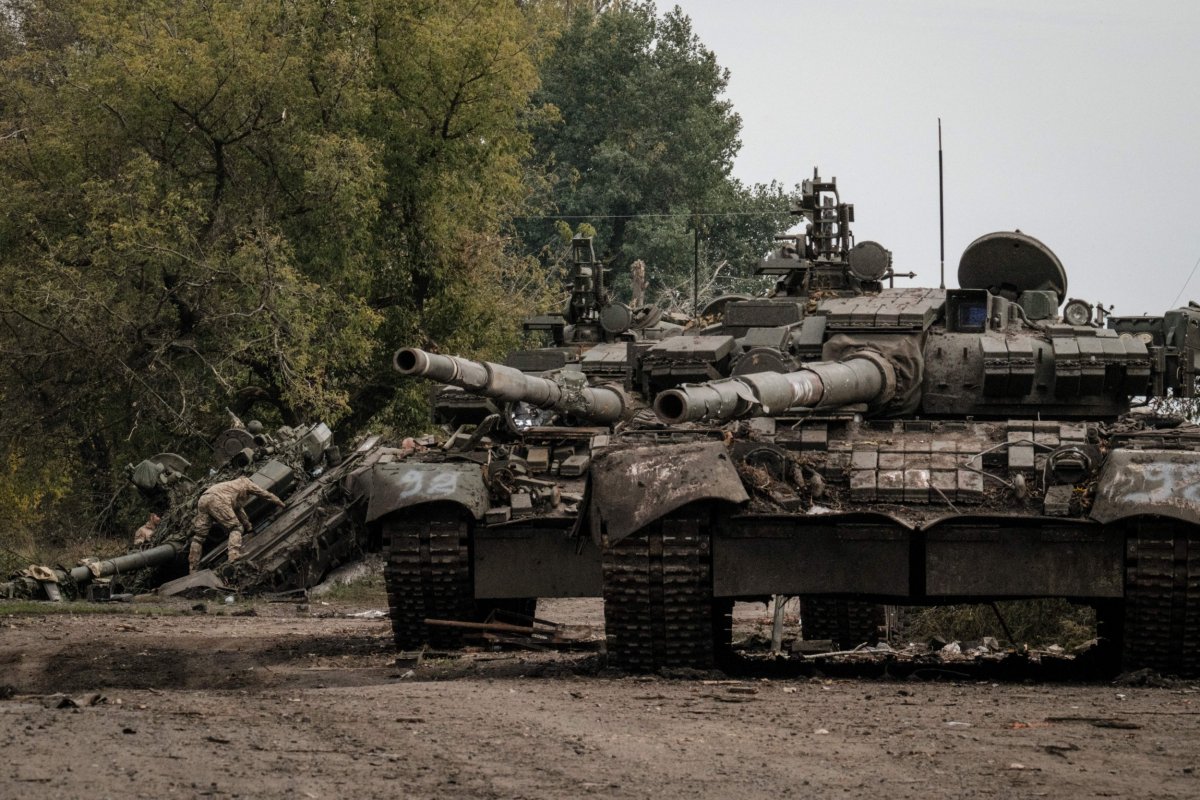Russia has earned the unsympathetic moniker "weak goose" on Chinese social media following the country's strategic missteps in Ukraine, where Russian President Vladimir Putin's forces find themselves mired in a costly and drawn-out war.
Social media site Weibo is where one would typically find some of the loudest Chinese voices in support of Russia. Beijing and Moscow share history, military technology, and—under Putin and Chinese President Xi Jinping—strategic motivation, too.
However, Ukraine's counteroffensives and a series of tactical withdrawals by Russia's forces have left some Chinese social media users acknowledging that their endorsement has backfired, according to Manya Koetse, founding editor of the What's on Weibo website that tracks the country's social media trends.
The growing meme of "weak goose" is a direct translation of the phrase cai'e (菜鹅), itself a play on the homonym cai'e (菜俄), meaning "weak Russia." Cai (菜), literally "vegetable," is a slang descriptor for something of poor quality.
On Weibo, which reported more than 580 million monthly active users in the first quarter of this year, the words "weak goose" are accompanying posts about Russia's stalled offensive in Ukraine—next to pictures of abandoned hardware including tanks and infantry fighting vehicles, and maps illustrating the scale of the Russian retreat.
The nickname is particularly popular among Weibo's large network of military bloggers, who have watched the unfolding conflict with just as much fervor as open-source intelligence bloggers on Twitter in the West.

While a minority of Weibo users braved prevailing sentiments to oppose Russia's invasion and back Ukraine's defense in the early days of the war, the majority of the Chinese public sided with Russia in a perceived proxy battle against the West and the United States.
In keeping with the proxy theme, Chinese bloggers, not unlike many in the West, predicted a rout in favor of Russia. Instead, stiff Ukrainian resistance has forced the Kremlin to repeatedly recalibrate its objectives—and Chinese observers their own expectations.
Russia's withdrawal from the town of Lyman in the east was the latest failed engagement to trend on Weibo. For some, faith in a Russian victory is declining. For others, admiration for Russia's military standards is fading with each revelation of ill-equipped troops, sinking morale, and questionable battlefield tactics.
"Weak goose is weak," one user said, sharing images of the wreckage of a Russian Su-34 fighter aircraft said to have been shot down by a Ukrainian shoulder rocket launcher.
"Although I call them weak goose, too...I really think the Russian forces have underestimated the strength of NATO's military aid to Ukraine," a second user wrote.
Another remarked on the fickle nature of social media in general: "The last two days have been very confusing...everyone online acts like a military commander every day, criticizing this and that. One day Russia is the best; the next day it's a weak goose."
Koetse argued the unflattering moniker represents, at least in part, the Chinese public's reevaluation of Russia's military competence. The Kremlin's reputation apparently hasn't been helped by its need to mobilize more forces, or its attempt to consolidate gains by annexing partially controlled territory in eastern and southern Ukraine.
Despite the tendency to poke fun at Russia's failures, however, there's little suggestion that the Chinese public, or its government, will stop backing the merits of its cause. The reasons for this are manifold, but chief among them is the belief that Washington is intent on containing Beijing one way or another.
Uncommon Knowledge
Newsweek is committed to challenging conventional wisdom and finding connections in the search for common ground.
Newsweek is committed to challenging conventional wisdom and finding connections in the search for common ground.
About the writer
John Feng is Newsweek's contributing editor for Asia based in Taichung, Taiwan. His focus is on East Asian politics. He ... Read more
To read how Newsweek uses AI as a newsroom tool, Click here.








